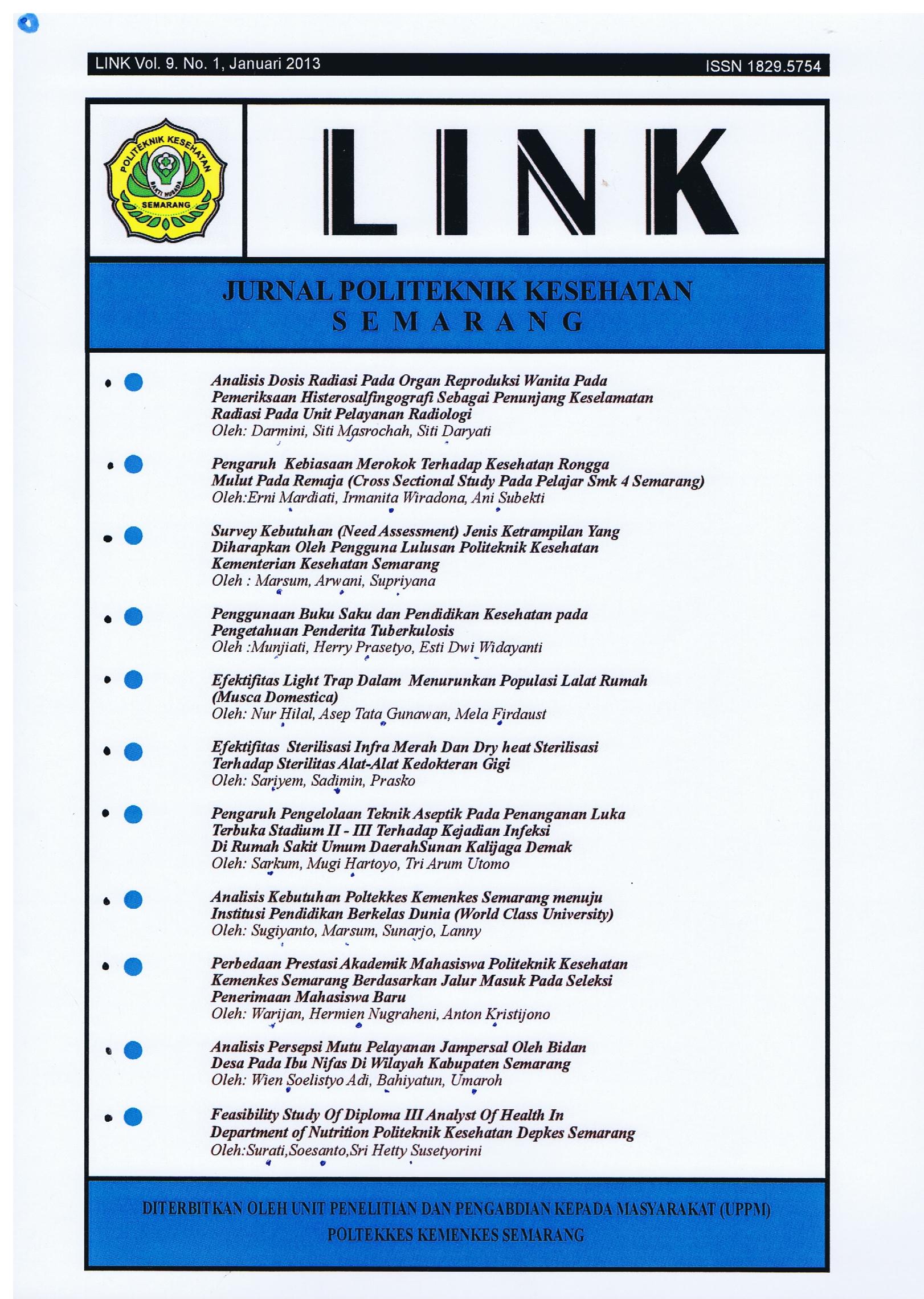Hubungan Minat, Potensi Diri (Kecerdasan) dan Kepribadian terhadap Pemilihan Lahan Kerja Bagi Calon Lulusan Perawat Program Studi Keperawatan Blora Poltekkes Kemenkes Semarang tahun 2012

Abstract
Background – The graduated nurses have increased for several years, in Central Java in 2011 there were 50 000 graduated diploma, but not all graduates can be absorbed in the health services, only 4-10 per cent per year (Kompas, December 3, 2011). The low uptake of graduates also occurred in Blora Nursing Study Programme, Tha data of the year 2008 - 2011, graduates got the job before the sixth month in a row - were 2008 (15%), 2009 (16%), 2010 (1.6%) and 2011 (6.5%). More details of the percentage above 50% internship at the Public Hospital and Primary Health Center, 10% as Government Civilization, 1% working at private health centers and 0.5% working in the International Institutions, but they have already resigned before the contract was completed and choosed to work closed by their parents (CDC Prodi Nursing Blora, 2012). From this description it can be seen that the low uptake was influenced by several factors such as ability, motivation, interests, personality and potential. These factors were also associated with the selection of workplace among graduate nurses.
Purpose -The aim of this research was to determine the relationship among interests, self- potential (intelligence) and personality in choosing workplace among graduated nurses.
Research Design -This research design was a descriptive survey and 78 candidates graduated nurses from Blora Nursing Study Program involved in 2012 in this study. The data was analyzed with the Multiple Linear Regression.
Results - The results showed that there was a significant relationship among these variables of interest, potential (intelligence) and personality in choosing workplace, with the value F count > F 0,05 was 28.400 > 2.730, and the coefficient of determination of 53.5%, which means 46.5% influenced by other factors. Furthermore when the influence of each variables were viewed individually, the intelligence variable indicated that there was a significant relation to the selection of workplace, it was showed by t count >t table that was 5.861> 1.994.
Conclusion - It can be concluded that there was a significant relationship among interest, self-potential (intelligence) and personality to workplace selection among graduated nurses from Blora Nursing Study Program in 2012, and the intelligence factor has been the most significant relationship in the selection of the work area. The next studies should look at other factors that influence of motivation among graduated nurses in the selection of workplace.
Key Words: Interests, self, pontential, personality, and workplace
